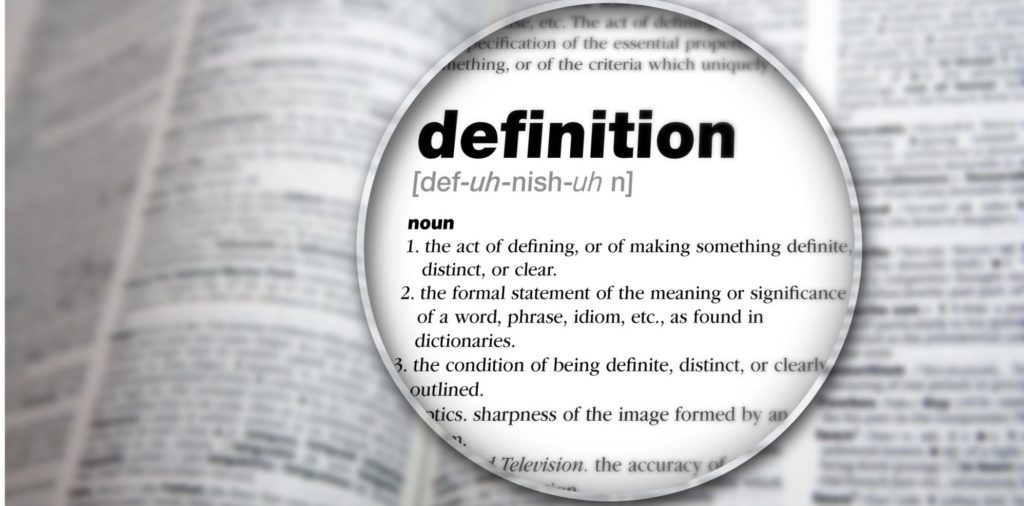Unpacking The Definition Of Mon Chéri: A Sweet French Expression
There's a certain magic to French words, isn't there? They often carry a special charm, a touch of elegance that makes them truly captivating. Among these lovely expressions, "mon chéri" stands out as a phrase many people hear and wonder about. It's a term that pops up in songs, movies, and everyday conversations, leaving many curious about its true heart. So, what exactly does "mon chéri" mean, and why does it hold such a special place in the French language?
Well, you know, understanding the precise meaning of a word, or what we call a definition, is really about grasping its significance and how folks use it. Just like a dictionary helps us see the features and explanations of a word, getting to grips with "mon chéri" means looking at its origins, its sound, and the situations where it naturally fits. It’s more than just a simple translation; it’s about feeling the sentiment behind it, too.
This little phrase, "mon chéri," is quite a popular one, and for good reason. It carries warmth and a bit of affection, making it a favorite for those who speak French and even those just learning a few words. Today, we're going to take a closer look at this charming expression, exploring what it means, where it comes from, and all the different ways you can use it. It's actually a pretty interesting word, you know?
- Help I Accidentally Forgot How Gravity Works
- Julesari Leaks
- Do Female Cats Spray
- Niece In Spanish Language
- Costco Dinner Kit Chicken Taco
Table of Contents
- The Heart of "Mon Chéri": What It Truly Means
- Tracing the Roots: Where "Mon Chéri" Comes From
- Using "Mon Chéri": More Than Just Romance
- "Mon Chéri" in Pop Culture and Everyday Talk
- Frequently Asked Questions About "Mon Chéri"
- Wrapping Up Our Exploration
The Heart of "Mon Chéri": What It Truly Means
When people ask about the definition of "mon chéri," they're often looking for a simple, clear explanation, and that's fair enough. Basically, this lovely French phrase translates directly to "my darling," "my dear," or "my beloved." It's a term of endearment, a way to show affection to someone special. So, it's pretty much a sweet little word to call someone you care about, you know?
The core idea behind "mon chéri" is, well, affection and fondness. It really communicates a feeling of closeness and warmth. As the meaning of definition tells us, it’s a statement explaining a word's significance. For "mon chéri," that significance is deeply tied to personal connection. It's a way to express a gentle bond, whether that bond is romantic or something else entirely. It's actually quite versatile, you see.
It’s important to remember that French, like many languages, has gendered words. So, "mon chéri" is typically used when speaking to a male person. If you're talking to a female, the correct form would be "ma chérie." Both phrases carry the same lovely sentiment, just adjusted for the person you're speaking with. This distinction is quite important for getting it just right, as a matter of fact.
- Can You Eat Crocs
- What Is A Femboy
- How Long Does It Take For Eyelashes To Grow Back
- Lirik Heart Will Go On
- Two Person Yoga Poses
Tracing the Roots: Where "Mon Chéri" Comes From
The origins of "mon chéri" are, you know, pretty straightforward; they're rooted deeply in the French language itself. The word "mon" means "my," and "chéri" comes from the verb "chérir," which means "to cherish" or "to hold dear." So, when you put them together, you get "my cherished one" or "my dear one." It's a very direct and heartfelt expression, really.
This kind of affectionate language has been a part of French culture for a very long time. People have always found ways to express love and closeness through words. "Mon chéri" is just one of those timeless expressions that has stuck around because it's so effective at conveying warmth. It's like, a classic way to show you care, you know?
The term is, in some respects, a linguistic echo of a culture that values romantic gestures and polite, affectionate speech. It's a small piece of a much bigger tapestry of French terms of endearment, like "mon bon," "mon brave," or even "mon chou" (my cabbage, believe it or not!). Each has its own flavor, but "mon chéri" has certainly become one of the most widely recognized, and for good reason, too.
Using "Mon Chéri": More Than Just Romance
While many people connect "mon chéri" mostly with romantic relationships, it's actually used in a few different situations. It's not just for lovers, you know? The phrase can show affection in a broader sense, making it a bit more flexible than you might initially think. It’s pretty interesting how language works like that, actually.
For Loved Ones: A Romantic Touch
Yes, the most common way to hear "mon chéri" is, of course, between romantic partners. A husband might say it to his wife, or a boyfriend to his girlfriend. It's a sweet, intimate way to address someone you love very much. It truly adds a layer of tenderness to the conversation. You know, it's a classic for a reason.
When used in this way, it often comes with a soft tone of voice and a genuine smile. It’s a verbal hug, a little reminder of the special bond you share. It's a very personal way to communicate affection, and it really feels quite special when someone calls you that, too.
For Friends: A Warm Gesture
This might surprise some, but "mon chéri" isn't exclusively for romantic relationships. In French culture, it can also be used as a warm, friendly term, especially among very close friends or family members. For instance, an older relative might use it for a younger family member, or a close friend might use it in a lighthearted way. It's a bit like saying "my dear" in English, which can be used platonically. So, it’s not always super intense, you know?
Consider the example from our text: "Je sais mon chéri, mais des fois, c'est pratique." This translates to "I know, my darling, but sometimes it's practical." Here, "mon chéri" might be used in a slightly less intense, more casual, yet still affectionate way. It shows a certain level of comfort and closeness, but perhaps not necessarily deep romantic love. It’s a very good example of its practical use, really.
It's also pretty common for parents to call their children "mon chéri" or "ma chérie." It's a very natural expression of parental love and care. So, you see, its scope is actually quite broad, going beyond just partners. It’s a very sweet thing to say to a little one, too.
When to Use It (and When Not To)
Knowing when to use "mon chéri" is, you know, just as important as knowing what it means. If you're speaking French, it's generally best to reserve it for people you have a close, personal relationship with. This includes romantic partners, close family, and very good friends. It's a term that shows familiarity and affection, so it wouldn't be right for strangers or formal situations. It's a bit too personal for that, you know?
You probably wouldn't use it with a shopkeeper, a boss, or someone you've just met. It could come across as too forward or even a little odd. The idea is to use it where genuine warmth and closeness are present. So, it's all about context, as a matter of fact. Learn more about French terms of endearment on our site for more context.
Using it correctly shows respect for the language and its cultural nuances. It's a lovely phrase, but like any term of endearment, its power comes from being used thoughtfully and appropriately. It's actually pretty simple once you get the hang of it, you know?
"Mon Chéri" in Pop Culture and Everyday Talk
You know, "mon chéri" has made its way into lots of different places, not just in France but around the world. It often appears in movies, songs, and books to add a touch of French romance or to show a character's affectionate side. It's a phrase that many people recognize, even if they don't speak French, because it just sounds so charming. It's pretty cool how it's become so widely known, too.
Its presence in popular culture helps keep the phrase alive and relevant. It's a timeless expression of affection that continues to resonate with people across different generations. It seems to have a lasting appeal, you know, which is really something special. The very fact that it's still so commonly used, even today, shows its enduring power.
Even outside of direct French conversations, you might hear "mon chéri" used playfully or as a nod to French elegance. It’s a testament to how language can travel and become a part of a broader global vocabulary. It’s actually quite a famous little phrase, you know? And it continues to capture hearts, very much so.
Frequently Asked Questions About "Mon Chéri"
Is "mon chéri" only for romantic partners?
No, not really. While it's very common in romantic settings, "mon chéri" can also be used for close friends, family members, and children. It really depends on the context and the level of closeness you share with the person. It's a bit like saying "my dear" in English; it can be affectionate without being romantic, you know?
What's the difference between "mon chéri" and "ma chérie"?
The difference is about gender. "Mon chéri" is used when you're speaking to a male person, while "ma chérie" is used when you're speaking to a female person. Both mean "my darling" or "my dear," but you need to pick the right one for the gender of the person you're addressing. It's a pretty important detail in French, you see.
Can I use "mon chéri" for a child?
Absolutely, yes! Parents often use "mon chéri" or "ma chérie" for their children. It's a very sweet and natural way to express love and affection to a little one. It's quite common and perfectly appropriate for showing parental warmth. It's a lovely thing to say, you know?
Wrapping Up Our Exploration
So, we've taken a good look at the definition of "mon chéri," haven't we? It's a really charming French expression that means "my darling" or "my dear." We've seen that it comes from the French verb "chérir," meaning "to cherish," and it's used for male individuals, while "ma chérie" is for females. It's used in lots of ways, from deep romantic connections to warm, friendly exchanges, and even with children. You can look up more about its translation and pronunciation at the PONS online dictionary, which is a pretty helpful resource.
Understanding phrases like "mon chéri" helps us appreciate the richness of language and how words carry so much feeling. It's a lovely way to add a touch of warmth to your conversations, whether you're speaking French or just borrowing a sweet phrase. Why not try adding a little bit of this French charm to your own interactions? You might find it's a very nice way to connect with people, too. And for more interesting language insights, you can always check out this page on our site.
- Costco Dinner Kit Chicken Taco
- Grab The Mic Game
- What Is Boba Made Of
- Chris Jones 40 Yard Dash
- Jamaican Restaurants Near Me

Defining terms

What's In A Word? | Engineering Technical Consultants

The ICT Sector: the complexity of definitions